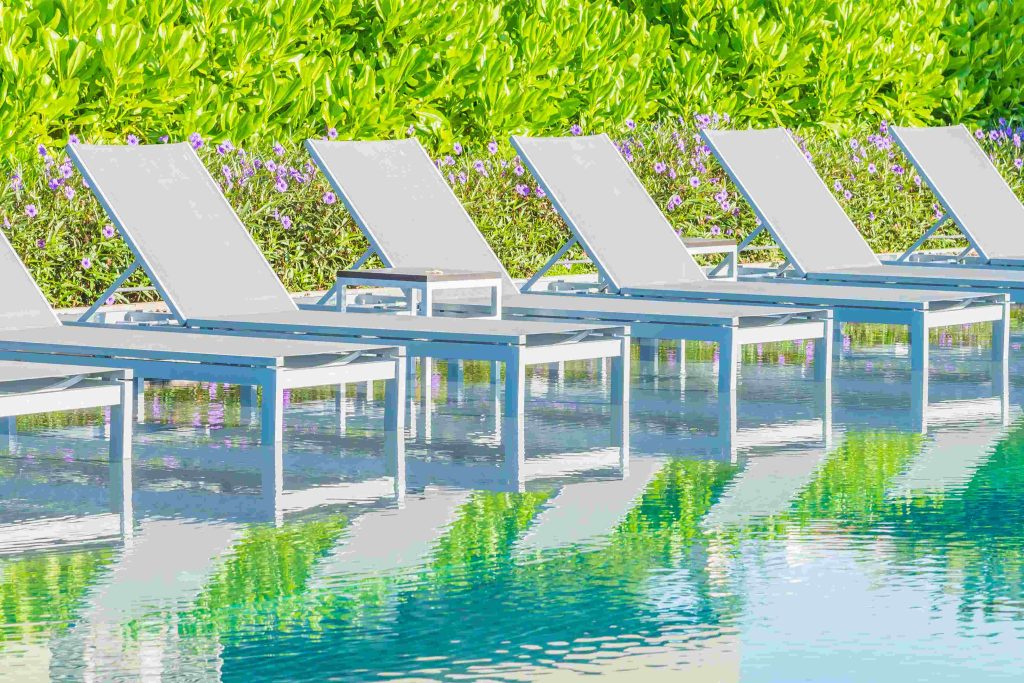
Guide To Solar Pool Heating Maintenance
Cleaning and upkeep of solar panels are essential. But a lot of us aren’t sure how to do it correctly. There isn’t much that has to be done in terms of cleaning and maintaining solar panels. Consequently, the cleaning aspect of things may be disregarded. It may seem like the last task on your list, and many individuals neglect their solar panels for years at a time. We’ve put up a simple guide on solar pool heating maintenance and cleaning to assist you in maintaining your panels properly. Check out our tips given below:
When Your Pool Is Not In Use, Use A Pool Cover
Covers for swimming pools are a great way to reduce the amount of power your pool requires. They lessen the amount of water your house uses in the summer by preventing evaporation and assisting in the retention of the heat produced by your pool heater. Your heater will have to use more energy if you don’t have a pool cover since it will have to work harder to keep your pool heated. Furthermore, in very hot areas, a white pool cover is an affordable solar pool heating energy-efficient option to help prevent your pool from scorching.
There are several varieties of pool covers available. One of the most popular (and affordable) options is solar coverings. Although they cost more, vinyl and insulated vinyl coverings are more durable. Whichever you choose, covering your pool while it’s not in use may save you between 50% and 70% on solar pool heating costs.
Inspect The Solar Panels Condition
As solar panels are typically mounted on roofs, they need to be inspected by a solar pool company to ensure that no mishaps occur. Birds, storms, hail, and normal dirt and leaf accumulation may all harm solar panels. To ensure that your pool’s heating system operates as efficiently as possible, your solar panels should be examined and cleaned as needed. Storm- or animal-related physical damage is usually easily repaired.
Water Flow Valves
Water flow valves regulate how much water enters and exits your system. To heat water quickly and replace it with cooler water to heat it faster, the ideal flow rate for water via strip collectors is as high as possible. The uneven heating of water by your solar heating system might be caused by malfunctioning valves.
Filters And Pumps
The pool pump cycles water through the filter to guarantee that all debris is eliminated from the water. The water is then directed through a diverter and heated in the solar collectors. After going through the chlorination system, the heated water is returned to the pool as warm water. In addition to a manual or automated valve that directs water through the solar collectors, some solar pool heaters also have sensors. When the collector temperature is several degrees above the pool temperature, this occurs. Filtered water, however, avoids the collectors and returns to the pool if the temperature of the collectors and the pool’s water are the same.
Make Sure The Water Quality
In addition to making your pool appear welcoming, you need to make sure that its health comes first. You must make sure that the chemicals needed for your pool are checked regularly, at least once or twice a week, after you begin to use your pool frequently due to solar pool heating service in-house. It is necessary to monitor the amounts of cyanuric acid, pH, chlorine, and water hardness in your swimming pool. Make careful to backwash the filter while you check your chemicals, and then use whichever technique you like to check your chemicals. Simply follow the directions contained in the box to monitor the pH and chlorine levels using the simple kits that you can get from any hardware or pool supply store.
Control The Exposure To Chlorine
Swimming is made much more fun by the solar pool heating you’ve placed in your home, but not when your family experiences the dreaded “red and itchy eyes” because of an unbalanced chlorine level. Chlorine contributes to the cleanest, healthiest possible water quality. Maintaining your pool’s chlorine levels also helps to maintain it in good shape and prevents issues from bacteria, algae, and other contaminants down the road. You just need two to three parts-per-million, or ppm, of chlorine in your swimming pool, and since it’s heated, there shouldn’t be any issues. You should monitor not just the pH levels in your pool but also its chlorination. A pH of 7.0 is ideal for your pool; any higher or lower might make it overly acidic or alkaline, making swimming in it unpleasant.
Discard Any Loose Debris
As time passes, solar panels will probably accumulate dust and other debris. It’s a good idea to use a brush to remove any loose dirt before using water. When you water the solar panels down, you’ll be able to get them immaculately clean. Since most solar panels are angled and positioned high up, they are well-positioned to collect all the dirt and debris that the environment has to give. Use a soft bristle brush to eliminate this.
Give It A Soapy Bath
You just need that, even though it sounds quite simple, to ensure that your solar panels remain clean. You may choose between using an ordinary sponge or cloth and an extending one to avoid touching the solar panels. Always choose soft material over metal, no matter what you do. In a word, scratches!
Optimal Temperature Setting
Even while it might be tempting to turn the heat up, keeping your pool heating system at a reasonable temperature will help it last longer. High temperatures that are sustained over time may strain the machinery and cause early wear and tear.
